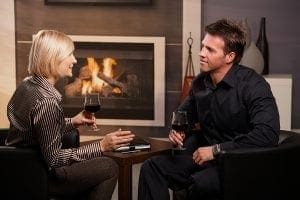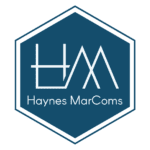 As with all things COVID-19, it’s time to rethink how your hotel gets the most out of its public spaces, Specifically, the hotel lounge, often part of the lobby, will return post-pandemic as a key point of differentiation for properties. People will yearn to socialize and have the experience of meeting new people from different places. As a vibrant space, bustling with both locals and out-of-towners, this venue allows hoteliers to increase guest socialization, so as to heighten satisfaction and possibly drive additional F&B revenues.
As with all things COVID-19, it’s time to rethink how your hotel gets the most out of its public spaces, Specifically, the hotel lounge, often part of the lobby, will return post-pandemic as a key point of differentiation for properties. People will yearn to socialize and have the experience of meeting new people from different places. As a vibrant space, bustling with both locals and out-of-towners, this venue allows hoteliers to increase guest socialization, so as to heighten satisfaction and possibly drive additional F&B revenues.
Many hotels go a step further with the ‘living room’ concept whereby paying guests have access to complimentary snacks and beverages in a designated area. Some even serve free alcohol to guests or allow guests to bring a friend. All of this is embedded into the nightly rate, but most of the time customers don’t feel price-gouged because the benefits of having access to what is essentially a modern form of the club lounge are quite substantial.
On a recent asset management consulting assignment for rural resort here in Canada, one of the key renovation projects was a revitalization of an underutilized lobby space so as to create a social environment and augment the arrival experience. Aside from the addition of comfortable furniture and a small library area, this also entailed setting up a new lobby arrival amenity in the form of complimentary hot chocolate, coffee and infused water as well as cookies baked in-house. All this was done, of course, with coronavirus safety measures in mind.
Even though this seems simple on paper, it’s a substantial cost for a small resort after you factor the ongoing food costs and daily labor to maintain this amenity. The justification was that for a quiet, mountaintop property, there were few other places nearby for guests to go, so increasing the onsite socialization would thus reduce unconscious boredom and boost satisfaction. With a large number of bookings stemming from past guests’ recommendations, it isn’t hard to connect the dots between a lively lobby experience and augmented word of mouth or return visits.
One interesting question that came up during the planning phase for this project was, “Should we not allow, or at least discourage laptops in this living room space?” This question was also posed with regard to guest safety in public areas whereby those visitors who linger for too often may be especially vulnerable to picking up any loose viral particles from nearby.
Normally, for decades past, the answer is clear in that guests should be able to do whatever they want. All COVID-19 considerations aisde, this case revealed a strong disconnect, as laptops insinuate a certain degree of antisocial behavior running counter to our overall objective. Picture it yourself: what do people do when they’re locked into their computers? Are they perhaps less likely to be chatting with their neighbors or sparking conversation? Maybe they even have their noise-cancelling headphones while they type away in silence.
For an urban hotel with more space and a higher volume of business guests, a no-laptop policy would be out of the question. But this resort has a heavy leisure component and was striving to build an intimate relationship with its travelers. Moreover, as part of the long-term vision of building the property’s reputation as a wellness retreat, banning electronics fits in nicely with the contemporary trend of ‘digital detox’ for public hotel spaces.
Hence, after much debate, we decided to not allow laptops within the narrow confines of this living room zone. If guests wanted to work, they could utilize their computers at their desks in every guestroom, or weather permitting, on the patio.
This was a tough move, but it’s not without precedent. Numerous traditional hotel lounges abide by their dress codes – often including a jacket-only policy for men – long after the culture has shifted towards casual dining. We are also currently seeing many independent cafés going laptop-free during high-traffic hours as a way to limit the time that the average patron sits in a given spot and thereby free up those seats for new customers. We know of one Starbucks near our office that had so many patrons using it as their remote office that it seemed to be more of a WeWork than a place to relax.
We’ve written tangentially about this before with the idea of not offering free WiFi in a hotel restaurant, and the underlying principle for a laptop-free hotel lounge is the same. Certain places are designed to encourage community and not act as temporary offices. Without the psychological barriers inscribed by having our computers in front of us, we are more likely to benefit from a delightful conversation with those around us. And as mentioned in the opener, facilitating great conversation in the aftermath of the pandemic may have a profound psychological boost for your guests.
This is something to consider if you are looking to heighten how guests experience your public spaces, especially if you are an independent or boutique property with a keen eye for differentiation. Be it a section of the lobby, one of your dining outlets, a reading room, a defunct library or a business center you are hoping to convert, adding in a no-laptop policy is part of a larger decision about what type of interactions you are hoping to promote, all serving the goal of boosting satisfaction and sales.














